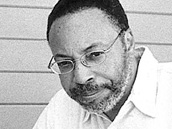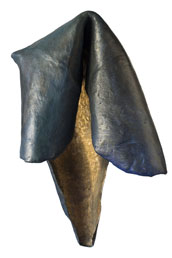Pages: 1 2 3 4 5 6 7 8 9 10 11 12 13 14 15 16 17
Alien, Correspondent
by Anthony Di Nardo
London, ON: Brick Books, 2010
96 pp. $19.00
Anthony Di Nardo was born in Montreal in 1949 and has lived in northwestern Ontario, Toronto, Germany, and Beirut (Lebanon). A writer, journalist, and small-newspaper editor, his Lebanese experience is the subject of his book of poems, Alien, Correspondent.
His focus is the tragic intransigence of Middle East parties in refusing to recognize Israel and accommodate Palestinians. The result? Mutual wretchedness and actual war. Di Nardo’s frustration and pathos is intensified by his love for all sides. Moreover, he is a survivor of the Israel-Hezbollah battle that played out in Beirut in the summer of 2006, and then of a May 2008 Hezbollah militia struggle for control of the streets of West Beirut. His poems intend to sing “this torn, conflicted, anarchic, ancient, and beautiful city” – to redeem its image. Di Nardo’s titles are printed to resemble old manual typewriter ‘type.’ He follows British poet James Fenton in emphasizing journalist travel and reportage as the source for his ‘objective’ lyrics.
The point is made in “Turbulence”: As an Airbus suffers “an unrelenting loss / of altitude upending after-dinner trays” and plastic cutlery and paper cups float and “fall on TV monitors,” the poet reflects “that it’s possible to watch the world / as it falls apart, and not be taken in.” The poet that Di Nardo takes as his first influence is, however, the Palestinian bard Mahmoud Darwish. “Dear Mahmoud” is a capital elegy: “the poem which I wanted to work / into some kind of broken-line kilim (rug), bold as your people / once wove, was left on the floor at their feet / where no matter the barter my price would not be met.”
Another fine poem is “Word for Word,” a three-page-long plaint about the bloody and culturally destructive anarchy that the Willful Coalition’s Invasion of Iraq in 2003 unleashed on that country: “Word for word … / books are burning…. / Even the bricks are burning / and the spines lined up along the shelves / and the asphalt on Mutannabi Street (in Baghdad) where the legs / of men and women caught on the run / are burning.”
Di Nardo is not all crisis and no pleasure. “A Muslim Woman I Met” is an inventive love poem: “I loved her proportions from the start /because I could dream of her as pillows / crushed and pushed against the bed.”
“Arabian Nights” is a well crafted statement of domestic passion: “I’ve lost the exact count but I’d say tonight / is about the ten thousandth time / I go to bed with the same woman…. / Love is clear about numbers – / it only takes two people once, then the rest / is up to them….”
In the end, there’s a bit of the Beat in Di Nardo. He references Bob Dylan in two poems, Jimi Hendrix and Miles Davis in others, then bases a memory of a party with the P.L.O. on a poem by Allen Ginsberg. In his sixties, he carries on the 60’s wish for ‘making love, not war,’ and what is wrong with that?





No Comments so far ↓
There are no comments yet...Kick things off by filling out the form below.